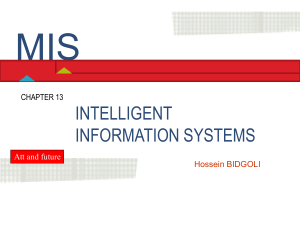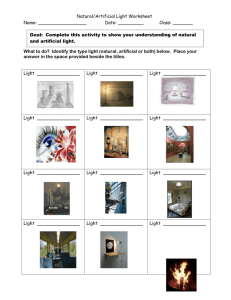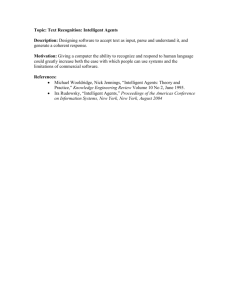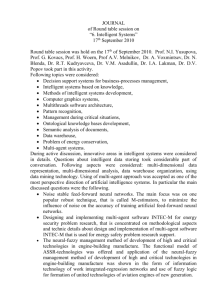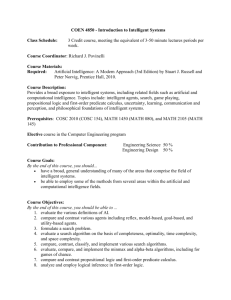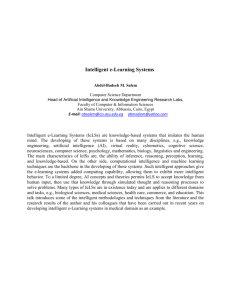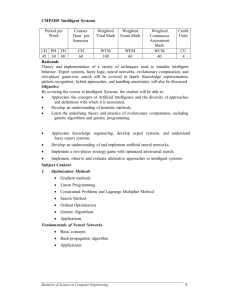1 - IDt
advertisement
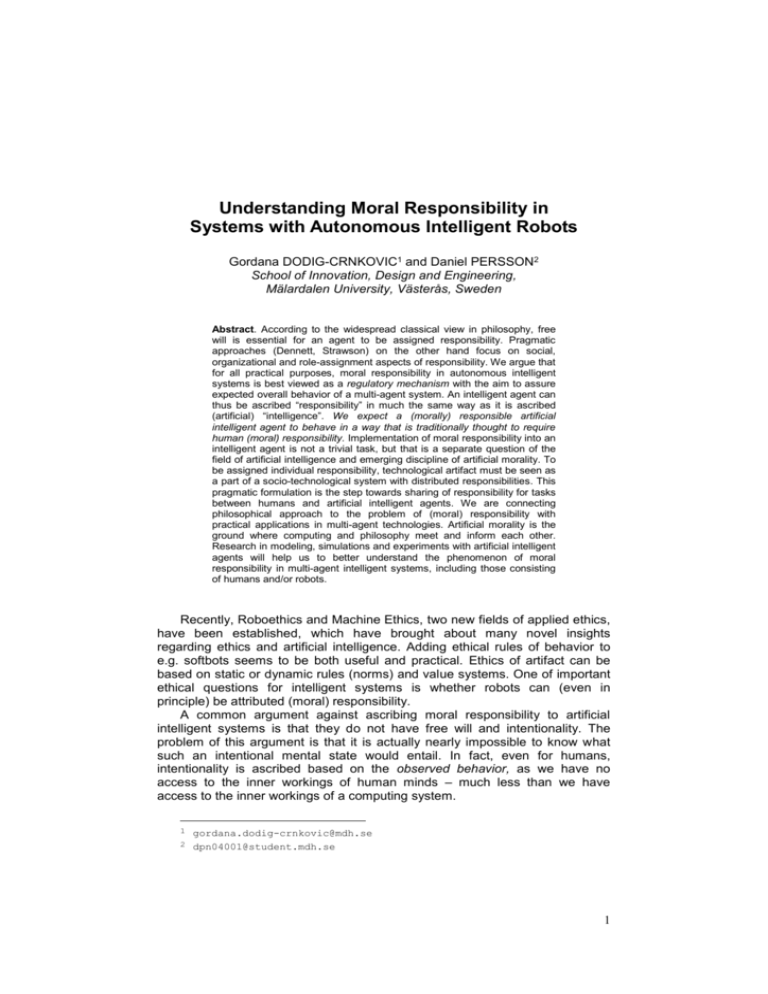
Understanding Moral Responsibility in Systems with Autonomous Intelligent Robots Gordana DODIG-CRNKOVIC1 and Daniel PERSSON2 School of Innovation, Design and Engineering, Mälardalen University, Västerås, Sweden Abstract. According to the widespread classical view in philosophy, free will is essential for an agent to be assigned responsibility. Pragmatic approaches (Dennett, Strawson) on the other hand focus on social, organizational and role-assignment aspects of responsibility. We argue that for all practical purposes, moral responsibility in autonomous intelligent systems is best viewed as a regulatory mechanism with the aim to assure expected overall behavior of a multi-agent system. An intelligent agent can thus be ascribed “responsibility” in much the same way as it is ascribed (artificial) “intelligence”. We expect a (morally) responsible artificial intelligent agent to behave in a way that is traditionally thought to require human (moral) responsibility. Implementation of moral responsibility into an intelligent agent is not a trivial task, but that is a separate question of the field of artificial intelligence and emerging discipline of artificial morality. To be assigned individual responsibility, technological artifact must be seen as a part of a socio-technological system with distributed responsibilities. This pragmatic formulation is the step towards sharing of responsibility for tasks between humans and artificial intelligent agents. We are connecting philosophical approach to the problem of (moral) responsibility with practical applications in multi-agent technologies. Artificial morality is the ground where computing and philosophy meet and inform each other. Research in modeling, simulations and experiments with artificial intelligent agents will help us to better understand the phenomenon of moral responsibility in multi-agent intelligent systems, including those consisting of humans and/or robots. Recently, Roboethics and Machine Ethics, two new fields of applied ethics, have been established, which have brought about many novel insights regarding ethics and artificial intelligence. Adding ethical rules of behavior to e.g. softbots seems to be both useful and practical. Ethics of artifact can be based on static or dynamic rules (norms) and value systems. One of important ethical questions for intelligent systems is whether robots can (even in principle) be attributed (moral) responsibility. A common argument against ascribing moral responsibility to artificial intelligent systems is that they do not have free will and intentionality. The problem of this argument is that it is actually nearly impossible to know what such an intentional mental state would entail. In fact, even for humans, intentionality is ascribed based on the observed behavior, as we have no access to the inner workings of human minds – much less than we have access to the inner workings of a computing system. 1 2 gordana.dodig-crnkovic@mdh.se dpn04001@student.mdh.se 1 Arguments against ascribing moral responsibility to artificial intelligent agents stem from a view of artificial intelligent system as an essentially isolated entity. We argue however that to address the question of moral responsibility we must see an agent as a part of a larger socio-technological system. From such a perspective, ascribing responsibility to an intelligent agent has primarily a regulatory role. In analogy with the definition of artificial intelligence as an ability of an artifact to accomplish tasks that are traditionally thought to require human intelligence, we can assume that artificial (moral) responsibility is an ability of an artifact to behave in a way that is traditionally thought to require human moral responsibility. Having accepted above functionalist approach to moral responsibility, the next step will be to model our understanding of a complex system of responsibility relationships in different human groups (project organizations, institutions, and similar) trying to simulate and implement corresponding control patterns in artificial multi-agent systems. Delegation of tasks is followed by distribution of responsibilities, so it is important to know how the balance of responsibilities between different actors in the system is achieved. Based on the experiences with safety critical systems such as nuclear power, aerospace and transportation systems one can say that the socio-technological structure which supports their functioning entails control mechanisms providing their (re)production and maintenance, proper deployment and use, including safety barriers preventing and mitigating malfunction. The central and most important part is to assure the safe functioning of the system under normal conditions, which is complemented by the preparedness for abnormal/accidental condition mitigation. The deployment of intelligent systems must consequently rely on several responsibility control loops: the awareness and preparedness for handling risks on the side of designers, producers, implementers, users and maintenance personnel as well as the understanding of the society at large which will provide a feedback on the consequences of the use of robots, back to designers and producers. This complex system of shared responsibilities should secure safe functioning of the whole distributed responsibility system including autonomous (morally) responsible intelligent robots (softbots). In a distributed open application, mutual communication of autonomous intelligent agents can be studied as an emergent property in a computational complex system. One of promising approaches to modeling and simulation of such communicating systems is game theory and evolutionary computing. Psycho-social control mechanisms of approval and disapproval typical of human groups will be replaced by functional equivalents in artificial agents. In sum: advanced autonomous intelligent artificial agents will at certain stage of development be capable of taking moral responsibility. In order to learn how to implement that feature into intelligent robots (softbots), a good starting point is to learn from humans in similar situations where sharing of moral responsibilities takes place. 2

